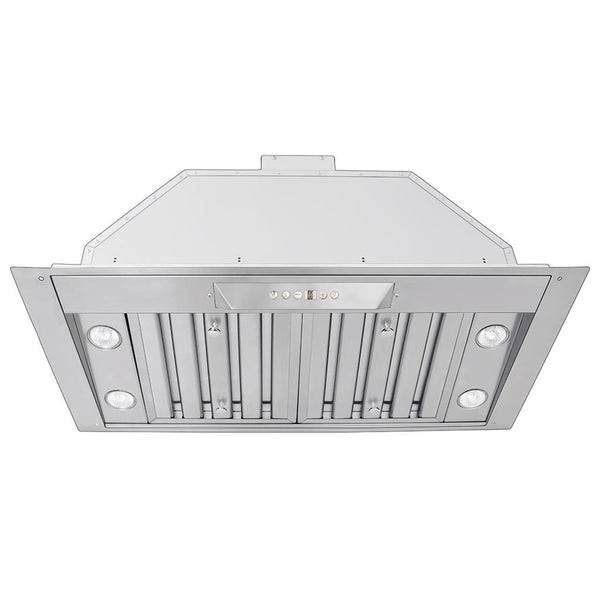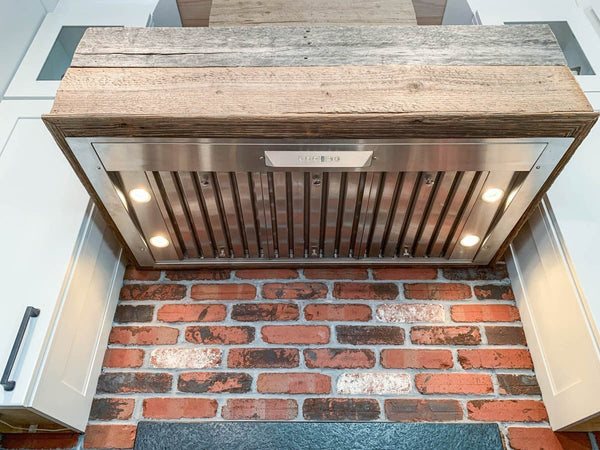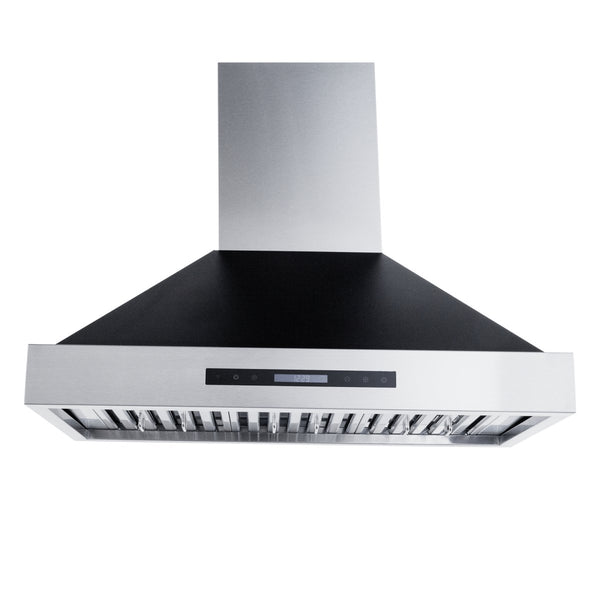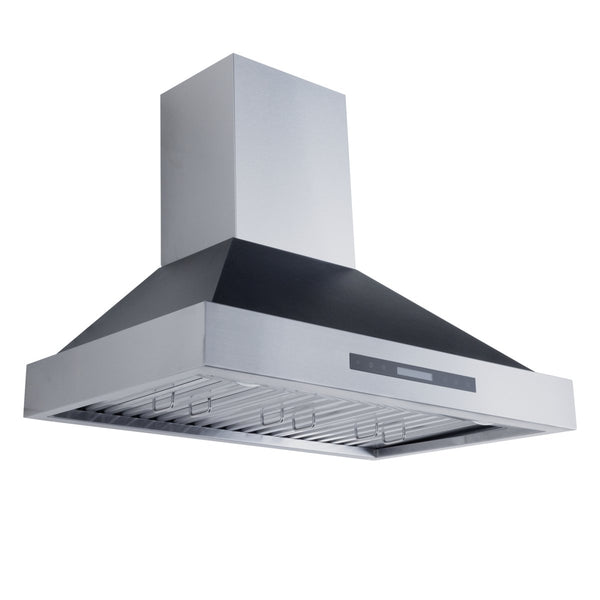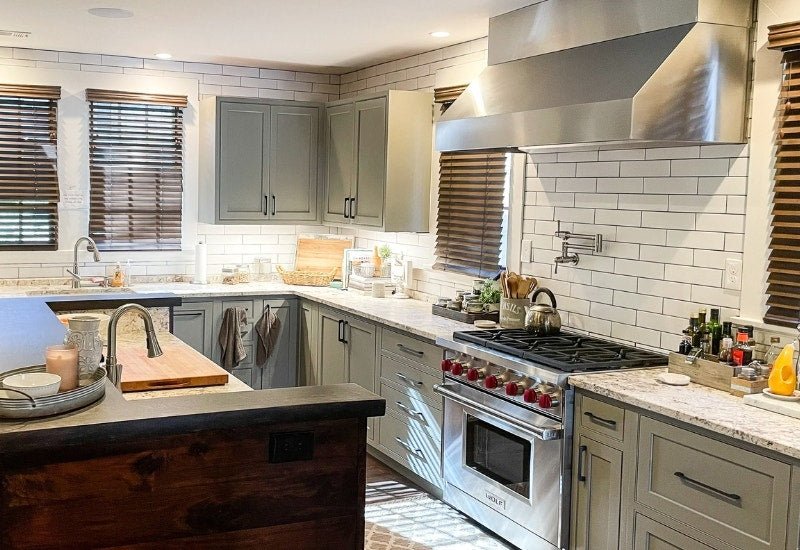Gas ranges have been a popular choice for home kitchens for many years due to their precise temperature control and efficient cooking abilities. However, there are concerns about whether using gas stoves could pose potential health risks. Proper ventilation with a good ducted range hood becomes more essential than ever when it comes to minimizing these potential risks and ensuring a healthy cooking environment within your home.
When installed and maintained correctly over your gas range, they can significantly improve indoor air quality.
By understanding the importance of a reliable ducted range hood, you can make an informed decision about your home's cooking setup.
Key Takeaways
- An adequately powered range hood helps maintain indoor air quality
- Proper ventilation and maintenance of ducted range hoods are essential.
- Well-informed decisions about cooking equipment and ventilation aid in creating the healthiest possible home environment.
- Proline hoods are the most powerful on the market. Find yours here.

Possible Health Risks Associated with Gas Ranges
If you are talking about the science of moving air, we are experts through and through. It's our passion and what we do day in and day out. Health sciences, we know a thing or two and have some passions and interests there, but we would push you to other sources for the final say.
That said, some do have concerns about the health of gas ranges and the prolonged use of them in cooking situations in the following ways.
Air Quality and Pollutants
When you cook using gas stoves, you may face potential air quality issues, as they emit pollutants while burning gas. Burning natural gas can release nitrogen dioxide, carbon monoxide, and particulate matter, which, if not well ventilated, can impact indoor air quality.
Gas Stove Emissions and Respiratory Health
According to Scientific American, people who use gas stoves without proper ventilation may experience increased rates of asthma, allergies, and other respiratory problems.
Childhood Asthma and Respiratory Issues
Today reports that living in a home with a gas stove where proper ventilation is not available may be linked to a higher risk of developing childhood asthma. As a precaution, limit your children's exposure to gas stove fumes and maintain good kitchen ventilation with the use of a ducted range hood.
Remember, while gas ranges may have certain health risks, you can mitigate these by ensuring proper ventilation and ducting your cooking space with a properly sized and powered range hood. By taking these steps, you can enjoy the benefits of gas stoves while keeping your home's air quality in great shape.

Ducted Range Hoods and Ventilation
Benefits of Ducted Range Hoods
Ducted range hoods offer several advantages when it comes to maintaining healthy indoor air quality in your kitchen. Here are a few benefits:
- Efficient Ventilation: They efficiently remove smoke, fumes, and dirty air, ensuring a cleaner and fresher environment while cooking.
- Reduced Health Risks: Using a ducted range hood helps minimize cooking pollutants, lowering the potential health risks associated with gas ranges.
The answer is really that simple. Here is how to properly size and determine the power you need for your kitchen hod.
The right size range hood
Getting a hood that is powerful enough to do the job
Ductless Range Hoods versus Ducted Range Hoods
| Feature | Ducted Range Hoods | Ductless Range Hoods |
|---|---|---|
| Ventilation | Vents outdoors, removing pollutants entirely | Recirculates filtered air back into the kitchen |
| Grease Removal | Removes smoke/grease effectively | OK at grease - Less efficient at removing smoke and particulate matter |
| Installation | Requires connection to ductwork, can be more expensive | Easier and less expensive to install |
| Maintenance | Regular cleaning of filters needed | More frequent filter replacement required |
While both ducted and ductless range hoods offer ventilation benefits, ducted range hoods are more effective at removing pollutants and grease from your kitchen, hands down.
Range Hood Maintenance
To ensure the optimal performance of your ducted range hood, follow these simple maintenance tips:
- Clean the Filters Regularly: Clean the grease filters every 3-4 weeks to prevent grease buildup.
- Inspect the Ductwork as Needed: Make sure the ductwork is in good condition and free from obstructions.
- Inspect the Internal Motor etc., annually for additional buildup: Once a year, remove the filters and visually inspect the internal works of your hood for built-up gunk and signs of wear that don't look normal. Clean those parts and call us at 877.901.5530 if you encounter anything concerning you. We can talk you through it.
In summary, ducted range hoods effectively remove cooking pollutants and promote a healthier indoor environment. However, it's essential to maintain your range hood and follow proper installation guidelines for optimal performance.

Regulations and Standards
U.S. Consumer Product Safety Commission Guidelines
The U.S. Consumer Product Safety Commission has expressed concerns about the potential health risks posed by gas stoves. It's important to use proper ventilation, like ducted range hoods, to mitigate these risks.
Future Legislation and New Construction
Consider the possibility of regulations involving gas stoves and range hoods. Some potential policy measures could include new performance standards for range hoods or requirements for ducted range hoods to be sold with gas stoves. When planning new construction or remodeling, include a high-quality and efficient ducted range hood to accommodate these potential changes.
Proline's hoods are the most powerful on the market and perfectly suited to keep your kitchen space clear of pollution and cooking exhaust. Check out our discount page here to see what the current steepest discounted hoods are.
By staying informed on emerging regulations and standards and by implementing a ducted range hood in your kitchen, you can protect your health and also contribute to broader climate change mitigation efforts.
reference, reference, reference
Frequently Asked Questions
Harmful effects of gas stoves?
Gas stoves can pose health risks, especially in poorly ventilated areas. They can emit pollutants such as nitrogen dioxide and carbon monoxide, which can lead to respiratory issues. Make sure to have proper ventilation while using your gas stove. Learn more about the health risks from this Scientific American article.
Do gas stoves cause fumes?
Yes, gas stoves can produce fumes, including nitrogen dioxide and other volatile organic compounds (VOCs). These fumes can contribute to indoor air pollution and cause potential health problems. Ensure proper ventilation to minimize these risks. Read more about gas stove fumes from Consumer Reports.
Gas stove CO2 emissions?
Gas stoves do emit carbon dioxide (CO2) as a byproduct of combustion. Though they are generally more energy-efficient than electric stoves, using them can contribute to greenhouse gas emissions. While these emissions might be relatively small, it's essential to be aware of your stove's impact on the environment.
Ducted range hoods necessary?
Using a ducted range hood can help improve indoor air quality by venting harmful pollutants, fumes, and odors outside. It's essential to have proper ventilation when using a gas stove, and installing a ducted range hood can be an effective way to do so. Discover more about how they can help from this NPR article.
Gas stove safety tips?
To keep your gas stove safe, follow these tips:
- Ensure proper ventilation to minimize harmful emissions.
- Regularly check for gas leaks – if you smell gas, immediately turn off your stove and call a professional.
- Keep the area around your stove clean to prevent fires.
- Never leave a lit gas stove unattended.
Stay informed about gas stove safety through resources like this article from TODAY.
Carbon monoxide risks from gas stoves?
Gas stoves can produce carbon monoxide (CO) if they aren't functioning correctly or don't have enough ventilation. Exposure to high levels of CO can cause symptoms like headaches, dizziness, and even death. To reduce CO risks, ensure that your stove is working correctly and ventilate your kitchen when your gas stove is in use. Be proactive and install a carbon monoxide detector to alert you if levels become dangerous.
